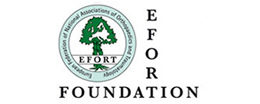The European Commission established in July 2013 a multi-sectorial and independent Expert Panel to provide advice on effective ways of investing in health. The Expert Panel was in particular in charge of developing an Opinion on the future EU agenda on quality of health care with a special emphasis on patient safety.
The Panel was requested to take into account previous and ongoing EU activities on patient safety and quality of care and in particular to:
- consider the core dimensions of quality of health care, including patient safety in the European Union.
- define within this:
- dimensions that should be given priority at EU level in order to improve quality of health care;
- actions that could be taken at EU level to address the selected dimensions.
- demonstrate what would be the added value of proposed EU actions.
- specify what information is needed to assess quality and safety of health care in the EU.
In July 2014, the Expert Panel released a draft Opinion open for consultation. EFORT responded to this Consultation welcoming the recommendations of the Expert Panel, but further stressing the importance of harmonisation of education and importance or registries as key components of patient safety.
The final Opinion was adopted on 14 October. In its opinion, the Expert Panel identified a subset of commonly accepted dimensions of quality and safety applicable to all health services.
On the information needed to assess quality and safety of health care in the EU, the Expert Panel highlight a subset of indicators potentially suitable to quantify these quality and safety core dimensions.
In addition, the Expert Panel recognises that the European Commission could play a bigger role in promoting EU actions to improve the quality of health care and the safety of patients. The actions proposed cover:
- the use of a comprehensive conceptual framework in relation to quality and safety;
- development of guidelines and the inter-professional sharing of good practices;
- funding research on quality and safety;
- economic issues related to the defined quality dimensions;
- education and training for the new roles of both patients and health professionals;
- information technology and information systems significant for health quality and safety;
- quality and safety aspects of the burden of chronic diseases and inequalities in health;
- the HTA network, and increasing attention to Health System Impact Assessment.
More information
- The Health First Europe and EFORT partnership
- EU Commission Expert Panel on Effective Ways of Investing in Health
- Future EU Agenda on Patient Safety and Quality of Care – Opinion adopted by Health Expert Panel


